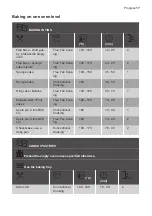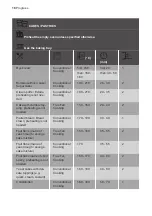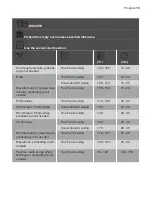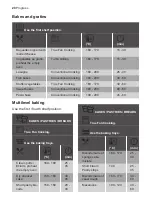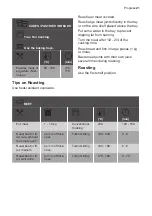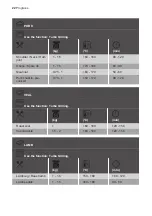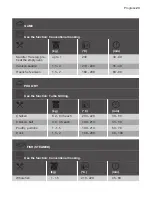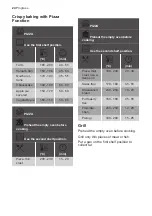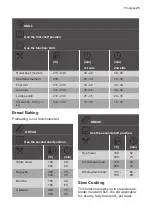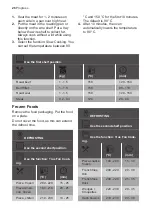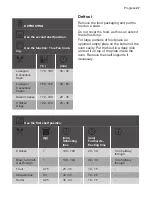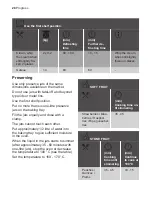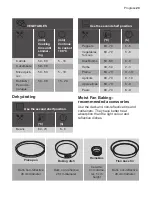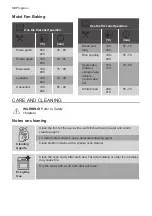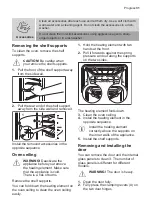
The temperature and baking
times in the tables are
guidelines only. They depend
on the recipes and the quality
and quantity of the ingredients
used.
Cooking recommendations
Your oven may bake or roast differently to
the oven you had before. The tables
below show recommended settings for
temperature, cooking time and shelf
position for specific types of the food.
If you cannot find the settings for a special
recipe, look for the similar one.
Baking
Use the lower temperature the first time.
You can extend baking times by 10 – 15
minutes if you bake cakes on more than
one shelf position.
Cakes and pastries at different heights do
not always brown equally. There is no
need to change the temperature setting if
an unequal browning occurs. The
differences equalize during baking.
Trays in the oven can twist during baking.
When the trays become cold again, the
distortions disappear.
Tips on baking
Baking results
Possible cause
Remedy
The bottom of the cake
is not baked sufficiently.
The shelf position is incor‐
rect.
Put the cake on a lower shelf.
The cake sinks and be‐
comes soggy or strea‐
ky.
The oven temperature is
too high.
Next time set slightly lower oven
temperature.
The baking time is too
short.
Next time set a longer baking time
and lower oven temperature.
The cake is too dry.
The oven temperature is
too low.
Next time set higher oven temper‐
ature.
The baking time is too long.
Next time set shorter baking time.
The cake bakes un‐
evenly.
The oven temperature is
too high and the baking
time is too short.
Set lower oven temperature and
longer baking time.
The cake batter is not even‐
ly distributed.
Next time spread the cake batter
evenly on the baking tray.
The cake is not ready in
the baking time speci‐
fied in a recipe.
The oven temperature is
too low.
Next time set a slightly higher
oven temperature.
16 Progress
















